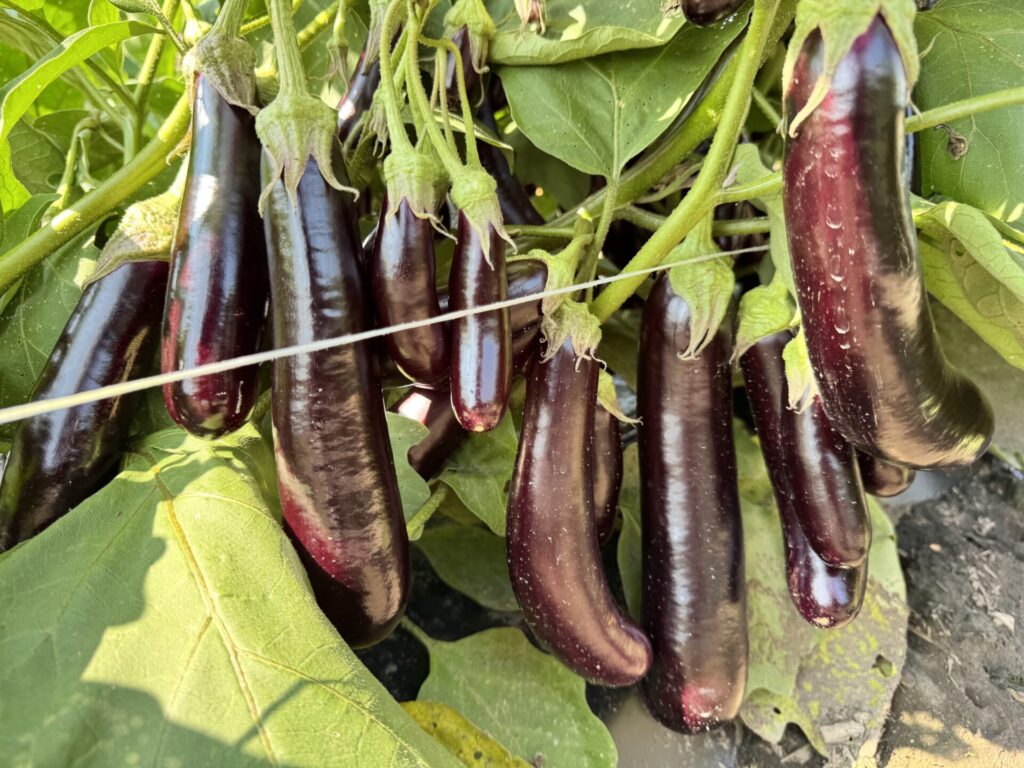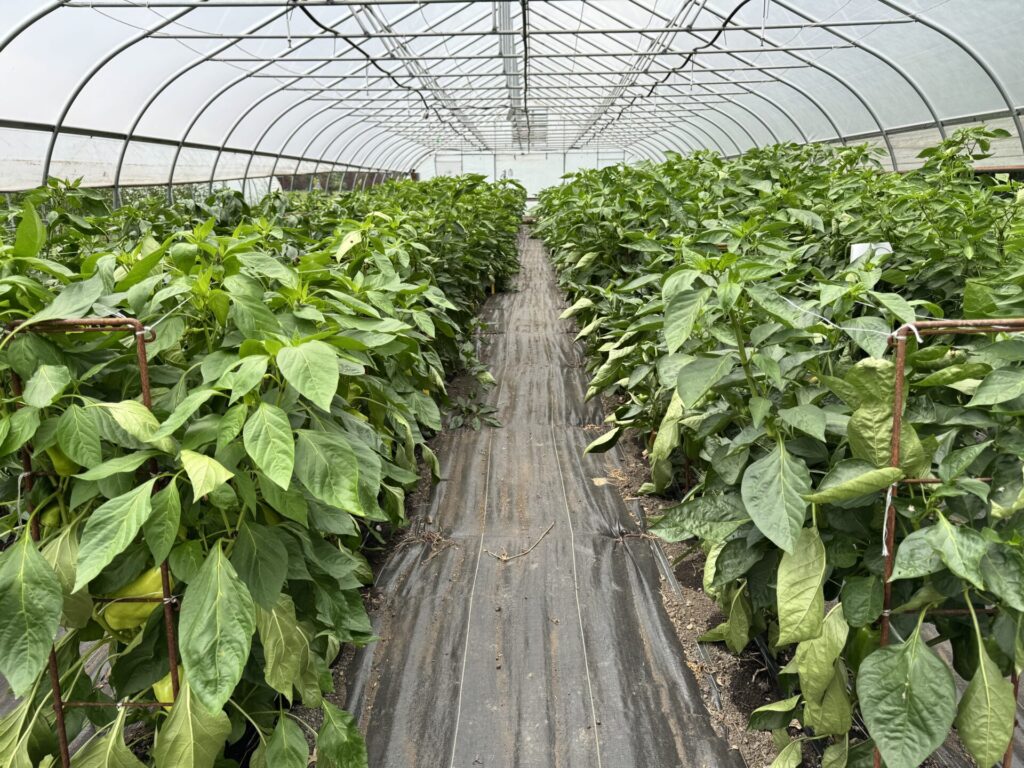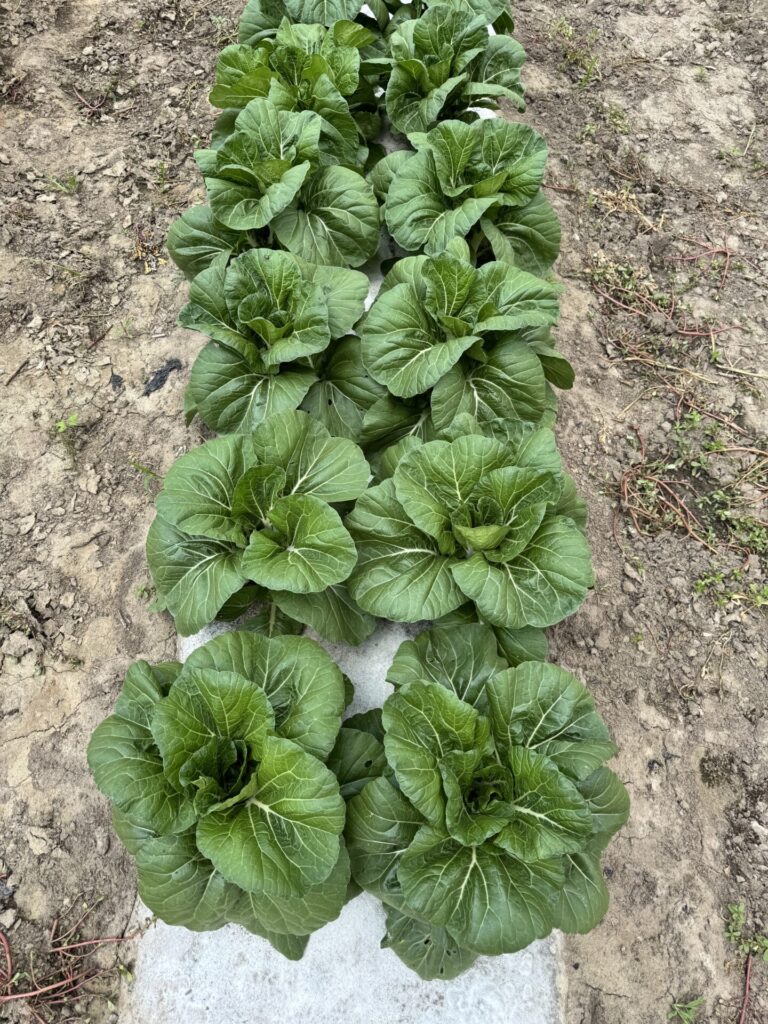Dear Valued VCH Readers,
Welcome to this week’s edition of the Vegetable Crops Hotline!
August continues to deliver on its promise as the month of plenty! Here at the Meigs Horticulture facility in Lafayette, we’re harvesting abundant crops of eggplant (Figure 1) and bok choy (Figure 2), with watermelon harvests just around the corner. Harvest of my high tunnel sweet pepper variety trial (Figure 3) at the Purdue Student Farm will commence next week. It’s a perfect reminder of why late summer is such an exciting time for vegetable growers across Indiana.
This week’s newsletter brings you a rich mix of timely updates and valuable resources, starting with an urgent alert about buckeye rot in tomatoes. The Purdue Plant and Pest Diagnostic Lab has received multiple tomato samples showing this disease over recent weeks, likely due to our wet and humid weather conditions. Caused by Phytophthora species, buckeye rot appears as gray-green to green-brown lesions that spread across fruit with distinctive concentric circles—something every tomato grower should watch for right now.

Figure 1. Eggplant var. Hansel produces many 3-4″ long clusters of fruit (Photo by Petrus Langenhoven).
Beyond this critical disease update, we’ll explore how veteran farmers are shaping Indiana’s food systems through farm-to-school initiatives and share insights from recent research on integrated soil-to-market decision-making that’s driving production success. For those tracking pest management, we have important updates on corn earworm thresholds as fresh silk season winds down on dent corn.
Looking ahead, we’re highlighting some excellent learning opportunities, including the Southwest Purdue Ag Center’s Pumpkin Field Day in September and a mechanical weed control event in Kentucky that promises practical solutions for specialty crop producers. Plus, we’ll introduce you to FoodLink—a free Purdue Extension resource that can help boost your produce sales by connecting customers with the information they need to confidently purchase unfamiliar fruits and vegetables.
As always, our goal is to keep you informed with the latest research, practical guidance, and opportunities to strengthen Indiana’s vegetable production community.

Figure 3. High tunnel sweet pepper variety trial at the Purdue Student Farm. Harvest will commence next week (Photo by Petrus Langenhoven).
Growers and Purdue Extension Educators
Your input and expertise make this newsletter a truly useful resource. If you have hot topics you’d like us to cover, success stories to share, or questions for our Extension specialists, please get in touch with us at plangenh@purdue.edu or contact the specialist directly. We also welcome high-quality photos of pest issues, unusual symptoms, or innovative production practices you’ve implemented on your farm.
Website Links in Newsletter Articles
We frequently include links to websites or online publications. If you are unable to access these resources, please don’t hesitate to contact your local Purdue Extension office or us to request a hard copy of the information.
Midwest Vegetable Production Guide
The 2025 Midwest Vegetable Production guide is now available for growers to visit online at mwveguide.org, or you can download and print a guide from your computer at mwveguide.org/guide. The guide can also be purchased for $15 per copy. Contact your Extension Office or Stephen Meyers (slmeyeres@purdue.edu) directly to buy a copy.
Midwest Vegetable Trial Reports
Are you still considering purchasing vegetable seeds? The Midwest Vegetable Trial Reports feature many articles to help you make an informed decision. The resource also hosts research results related to production.
Best regards,
Petrus Langenhoven
Clinical Assistant Professor and Vegetable Extension Specialist
Department of Horticulture and Landscape Architecture
Purdue University
